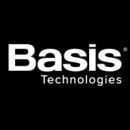How many times have you applied for a role only to be met with silence? How often have you made it through to an interview, only to be dropped before seeing the next steps of the process? In the thick of a job search, candidates often feel invisible, forgotten or unappreciated. The more you put yourself out there, the more it feels like you’re shouting into an endless void about yourself and your skills.
Who will listen?
The team at Basis Technologies focuses their candidate-centered hiring process on mutual respect. Michelle Michael, director of talent acquisition, explained that they want to have a two-way conversation with job seekers: “We want all candidates to come to their interviews feeling confident, prepared and as relaxed as possible so they can have productive conversations and get to know us.”
Finding common ground with potential new employees is just as important at Root. Forrest Tylutki described the thought process behind the company’s goal of tailoring hiring journeys for each candidate: “Being a candidate is hard, and interviewing is a vulnerable task.” Tylutki, the director candidate experience, added that empathizing with candidates drives the team at Root to design their interviews without bias. Here, there’s no worry that AI software will toss your resume or work samples will be assessed based on the name of the candidate who submitted them.
When you’re stuck in the hiring void, it’s difficult to feel seen or heard. But many hiring teams know the application and interview process can be tiresome and overwhelming for candidates — which is why Basis Technologies, Root, Jellyvision and RedShelf are ready to listen. Built In Chicago met with local leaders from these companies who are stepping it up to balance out the candidate experience and found that they, like their candidates, want better communication and more inclusivity.
What is the most important thing you want candidates to learn about your company, and how do you communicate it during the hiring process?
It’s incredibly important to Basis Technologies that the hiring process is a two-way street focused on finding a mutual fit, which means we want to be as transparent as possible about who we are. In this sense, our corporate values and principles are the key things that we want candidates to learn about.
We hire based on our values and guiding principles just as much as the skills and qualifications listed on our job descriptions. From appearing in preparation materials to interview questions and even onboarding, our corporate values are infused in each step of the hiring process.
Discussing a favorite guiding principle — mine is self improvement — and how it shows up in our day-to-day is a common interview topic. We want to hire people who add to our culture and align with our mission and values. Embracing change, supporting each other and doing the right thing are just a few pieces of our culture that we hope to reflect in our hiring process.
We want to ensure candidates feel like they are the most important part of our interview and hiring process — because they are!”
What are three ingredients that create a great candidate experience?
Transparency is the first ingredient that creates a great candidate experience. From setting accurate expectations around our open roles and culture to outlining what to expect in our interview process to providing our compensation ranges, transparency is key in creating an open process and finding the right mutual fit.
Second is inclusivity. All candidates should feel welcome and comfortable interviewing with Basis Technologies. We make sure to ask our applicants what their preferred pronouns are, offer breaks during lengthy interviews, or in some cases, offer non-live assessments, since candidates may not feel comfortable being put on the spot. We train all of our interviewers on inclusive interviewing to ensure we’re offering candidates a safe, inclusive experience.
Finally, closing the loop with candidates is imperative. If the end result is a “yes,” that’s wonderful, but a “not right now” is just as important. Anyone who takes the time to apply or interview with us should receive a respectful and timely answer. All candidates could be future team members at Basis!
How has your candidate experience changed over time, and why did you enact those changes?
We want to ensure candidates feel like they are the most important part of our interview and hiring process — because they are! Every change we make places them more at the center of the experience.
For example, we’ve added an easy — but impactful — candidate experience survey so that our teams are getting consistent feedback about how candidates are experiencing our process and our people. We’ve also provided more interview preparation touchpoints, from news links about Basis before their first conversation to a full interview preparation guide before their final interview. The guide takes candidates through our company’s story, values and diversity; equity and inclusion initiatives; and specific preparation pointers and tech tips to ace a virtual interview. We want all candidates to come to their interviews feeling confident, prepared and as relaxed as possible so they can have productive conversations and get to know us.
Finally, we made the decision to keep all of our interviews and onboarding virtual to allow for the most flexibility and to keep everyone safe. Interviewing can be time consuming and stressful, and we want our candidates to shine!
What is the most important thing you want candidates to learn about your company, and how do you communicate it during the hiring process?
The most important thing for candidates to know about Root is our mission and how it makes us different. We’re unbreaking an archaic insurance industry by driving meaningful and lasting change. Candidates will experience our culture of questioning the norm and pushing boundaries during the hiring process by learning about the impacts and contributions they can make to an unjust — and frankly discriminatory — insurance system. From data scientists to software engineers to actuaries, we’re looking to our team members to drive a positive impact in our pricing and scoring models, with fairness and equity running throughout it all.
What are three ingredients that create a great candidate experience?
Communication: By providing clear feedback and ensuring we communicate the candidate’s status throughout the hiring process, we hope to show we value their time. We aim to present a clear and consistent hiring journey tailored to each role, making sure that Root creates a strong sense of belonging for each candidate and new hire.
Also, we hope to be as transparent as possible. We aim to share important information up front, such as compensation, benefits, time-to-fill and more — this is to eliminate any confusion further down the application process and align early on some of the most important aspects of someone’s time at Root.
Finally, we demonstrate empathy. As a candidate, you’re putting yourself on the line and learning whether someone on the other end likes what you are saying or not. As candidate experience managers at Root, it’s up to us to ensure that we understand our candidate’s needs throughout the process and listen to what they’re looking for in the next steps of their career.
Root creates a strong sense of belonging for each candidate and new hire.”
How has your candidate experience changed over time, and why did you enact those changes?
As part of our constant desire to hire the best talent and transform the insurance industry, we aim to meet people where they are. We have leveraged technologies that enable us to drive fairness in our assessments and consistency in our candidate experience.
We’ve implemented blind work samples, where candidates present their best work without any personal attribution, so we can grade without bias. In addition, we review all resumes without AI software — each application submitted to Root is viewed with human eyes. And lastly, we have diverse interview panels to welcome our candidates and foster an open and honest environment while they interview with us.
What is the most important thing you want candidates to learn about your company, and how do you communicate it during the hiring process?
Jellyvision’s culture and the ability to grow within the company are the most important things we want candidates to know. Our culture is remarkable because of our values and the incredible people we have working here.
Jellyvision’s values are: solve problems, seek to tell the truth with kindness and respect, have no entitlement, and make work interesting. Employees truly embody these values and it shows in how they communicate, collaborate and provide feedback. Also, having a company band and a company holiday called Mustache Day does make work pretty interesting.
For growth, we have something called an individual development plan, which is essentially a template for an employee and their manager to be on the same page. It really puts growth into the hands of the employee, which provides great autonomy.
What are three ingredients that create a great candidate experience?
Communication, clarity and timeliness are the most important parts of the candidate experience. I want to put myself in the candidate’s shoes and think about what I would want from my recruiter or potential employer. Keeping candidates informed is huge, and sometimes even a “no update” email is an update. When communicating, I make sure that I am clear on my expectations, timeline and anything I need from the candidate. Clarity and timeliness in communication are also huge. We have all been in a situation where we hear nothing for weeks — it’s frustrating! We try very hard to make the process as quick and efficient as possible for our candidates.
We make sure there are no more than two people per interview panel so it feels more like a discussion and less like an interrogation.”
How has your candidate experience changed over time, and why did you enact those changes?
We have really changed how our team interviews. It’s off-putting as a candidate to interview with multiple panels, meet a lot of people and have the same questions asked, so we implemented competencies for every job at Jellyvision. With that, we are able to make sure each panel is interviewing on a different competency. Each job has seven competencies that can be found in all of our job descriptions. We have also limited the number of people on an interview panel. Again, how daunting does it feel to walk in as a candidate and be in a room with five other people asking question after question? Now we make sure there are no more than two people per panel so it feels more like a discussion and less like an interrogation.
What is the most important thing you want candidates to learn about your company, and how do you communicate it during the hiring process?
It’s most important for candidates to learn about our company culture, mission and values, and their future colleagues. RedShelf is a collaborative work environment where colleagues consider themselves friends and family more than co-workers. Our mission is all about making education more affordable, engaging and accessible. While we do share these key messages throughout the recruiting process, they’re always reinforced during phone or in-person interviews.
All first-round candidate interviews are conducted directly with human resources and are styled as open-ended dialogue, rather than a standard Q&A interview, giving us the opportunity to reinforce key company value propositions. It’s important that all of our candidates get to know RedShelf and believe it’s the place they want to be today and into the future — to continue growing in their careers.
We include future peers as well as senior leaders to give our candidates an opportunity to really get to know RedShelf.”
What are three things a candidate can do to enhance the interview experience?
We appreciate when candidates come prepared, having researched the role and the company. We once had a candidate reach out to one of our business partners to get feedback about their ongoing experience and process. I loved this!
It’s great when candidates are open and honest, telling their unique stories. Candidates oftentimes will think they are rambling in these open-ended conversations. But really, it’s when they share personal, detailed experiences that recruiters and hiring managers truly get to know them. Don’t think of bullet points; think of your personal story.
Great candidates are also life-long learners with a passion for education. They want to join an exciting industry that impacts millions of students each and every year. They love the idea of doing well by doing good.
How has your candidate experience changed over time, and why did you enact those changes?
In the four years since I joined RedShelf, we’ve built a strong, consistent candidate experience — an accomplishment that makes me proud. But like most organizations, there have been some unexpected changes due to Covid-19, which helped us make our processes even better.
Today, RedShelfers get more acquainted with their team members before their start date. Because the majority of our team continues to work fully remote, we’re consciously extending our interview process to include future peers as well as senior leaders to give our candidates an opportunity to really get to know RedShelf without having to interview onsite.













